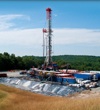Home
|
by Jan Lundberg
|
 "I would rather have ass fault than asphalt!" "I would rather have ass fault than asphalt!"
The artificial environment hasn't yet been questioned by environmentalists. They accept it pretty much as is -- they and it are wedded to the notions of progress, science, and "Better living through chemistry" (Dupont's old slogan appropriated by acid-head hippies). When a grassroots wing of the environmental movement went after road building and pavement (tarmac) two decades ago, it was quite fringy for mainstream enviros. Then when we went after plastics a decade ago, this too was considered "out there," and kept low on the list of concerns for the average campaigner. |
|
|
by Bill LeBon
|
 Ophiuchus, 13th Sign |
|
|
by Jan Lundberg
|
 a proposed grassroots non-organization to reckon with the approaching ice-free Arctic which signals a runaway feedback loop for global temperature rise and hostile climate. a proposed grassroots non-organization to reckon with the approaching ice-free Arctic which signals a runaway feedback loop for global temperature rise and hostile climate.
Mission and philosophy of Ice Defenders: "Anything goes in defense of Arctic ice"
The consensus on current information for understanding the Arctic's climate role, from top scientists speaking plainly:
Arctic Methane: Why The Sea Ice Matters (video) |
|
|
by Albert Bates
|
|
We complain about the slow progress of the climate talks, but what about the even slower progress on efforts to curb semen emissions?
Consider this: each day the population of humans on the planet expands by more than 200,000. That is one good-sized city, complete with water, food, energy, transportation, communication and sanitation infrastructure. To feed that city may require, if storage and process losses are kept to a minimum, 1 million kilocalories every day - something like a 20-acre stockyard of cattle, a Tyson's poultry farm the size of a superdome, and a large fleet of Japanese fishing vessels seine-netting dolphins as they scour the dwindling ocean stores for tuna. |
|
|
by Jan Lundberg
|
|
A personal journey/an open book
You are not alone in wondering when the obvious is going to be openly recognized:
When will the affordability of providing for basic human needs be widely compared with the towering waste of militarism and aggression, in the U.S. and beyond? When will caring for our planetary home, which only makes entire sense, be Job Number One? How many more Sandys and Fukishimas are necessary before the screaming global alarm is really heard?
|
|
|
by Jan Lundberg
|
|
To put behind us the "con$umerist relationship" that we have with nature, we can do something new that may be radically traditional. Judge for yourself whether if done widely, it might inspire to move us faster toward a paradigm of actual sustainability. Maybe it's something like this new set of alternative New Year's resolutions. Some of them happen to be gift options too. Let the fun and peaceful rebellion begin, starting with a solstice party.
|
|
|
by Sharif Abdullah
|
 [Editor's note: [Editor's note:
The onslaught from industrialized, militarized society, where the vast majority is in some kind of "free slavery," is even worse than Sharif Abdullah identifies in his latest Currents and Futures column which follows. But he's right on target, pardon the expression.
As for me, |
|
|
by Jan Lundberg
|
|
"Perhaps there is no Gaia; perhaps Gaia if she exists has no ability or inclination to act; perhaps Gaia is clearly acting already to end the infestation... but for those of us who grew up feeling that nature was all-resilient and not likely to disappear or turn against us, the unthinkable has become the new norm."
 When one looks at a blueish star twinkling beyond some silhouetted living leaves in the sky, the beauty and wonder of the natural world speaks to us: this existence we witness as conscious beings is an amazing accomplishment of life on this lucky outpost of the Universe. When one looks at a blueish star twinkling beyond some silhouetted living leaves in the sky, the beauty and wonder of the natural world speaks to us: this existence we witness as conscious beings is an amazing accomplishment of life on this lucky outpost of the Universe.
|
|
|
by Marilyn Hempel / Jan Lundberg
|
 According to the OECD 2012 world report on life satisfaction, Danes are the happiest people in the world. According to the OECD 2012 world report on life satisfaction, Danes are the happiest people in the world.
Editor's note: Marilyn Hempel's approach to equating happiness with low population size without out-of-control growth, plus equitable income levels, is simple and convincing. Some parts of the puzzle, such as stronger sense of community and safety in public without heavy policing, become more clear, as positive influences can be seen feeding upon each other. Following Ms. Hempel's article is a complementary report by Jan Lundberg (a Danish and Swedish name).
|
|
|
by Jan Lundberg
|
|
Energy and the "nature connection"
 Two major aspects of our lives are habitually kept separated, to our detriment and confusion. First, let's agree we are often socially concerned, sensitively aware and observant beings, but coping with ubiquitous, mechanized, artificial environments driven by "the market."
Two major aspects of our lives are habitually kept separated, to our detriment and confusion. First, let's agree we are often socially concerned, sensitively aware and observant beings, but coping with ubiquitous, mechanized, artificial environments driven by "the market."
|
|
|
by Jan Lundberg
|
 fracking in Pennsylvania |
|
|
by Jan Lundberg
|
 Sailing wine Holland-Denmark
You recall how we saved healthy land with our campaign for a road building moratorium for over a decade, and educated the public. In the past few years you've noticed our growing emphasis on sail transport. |
|
| << Start < Prev 1 . 2 . 3 . 4 . 5 . 6 . 7 . 8 . 9 . 10 . Next > End >>
|
|
|
|

